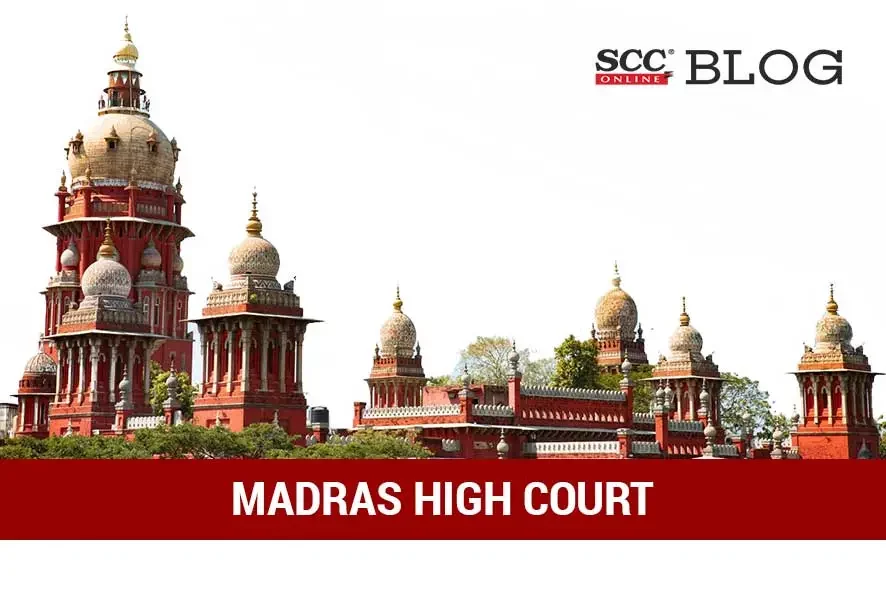Madras High Court: In a writ appeal dealing with the question that whether, under the Tamil Nadu Village Panchayats (Provision of Burial and Burning Grounds) Rule, 1999 (‘Rules 1999'), the burial can take place at a place other than the designated land, more particularly when the designated land exists in the village, the full bench of R. Mahadevan , Dr. G. Jayachandran* and Mohammed Shaffiq, J. held that under Rules 1999, the burial cannot take place at a place other than the designated land.
The Court took note of Rules 5 and 7 of the Rules 1999 and said that both the Rules start with a negative clause. Rule 5 prohibits new place for burying or burning the dead without a license obtained from village Panchayat. Rule 7 prohibits burning or burying any corpse, in any place, within 90 meters of the dwelling place or source of drinking water supply. The place licensed as burial and burning ground is exempted from the 90 meters restriction. Rule 5(1) does not indicate that the place where a body is buried or burnt, will not carry the character of burial ground or burning ground. If, single body is burnt or buried, and the landowner has no intention to allow burial of body in future. Whoever prefers a new place whether private or public to be used for burying or burning the dead, license from the Panchayat is a pre-requisite.
Thus, the Court said that except the place which has already been registered under Rule 4 or a new place where license is obtained following the procedures contemplated under Rules 5(2) (3) and (4), no body can be buried or burnt in the place which is neither been registered or granted license.
Further, the Court noted that Rule 6 mandates the village Panchayat to maintain a register at its office showing places which are provided, registered or licensed under Rules 3 to 5. The framers of the Rules were conscious of the fact that there may be violation of Rule 7 (1). Therefore, the Rule prescribes punishment for contravention of Rule 7(1) but, prosecution shall be instituted only on written sanction by the Executive Authority of the village Panchayat concerned.
Thus, the Court concluded that the condition of 90 meters restriction found in Rule 7(1) cannot be construed as the right to bury body anywhere and everywhere. Burial or burning the body is subject to the other provisions in the Rules. The conditions of distance restriction from the water body cannot be read in isolation unmindful of the purpose of the Rules and other provisions thereunder.
Further, the Court said that the Division Bench in P.Muthusamy v. B.Vennila1 , has not declared that body can be buried anywhere other than the registered or licensed place in a village Panchayat. The Division Bench had only recognized the custom prevailing in that particular village. The observation made in the Muthusamy’s case, is restricted only to the facts of that case and it cannot have application in rem.
Thus, the Court held that after Rules 1999 came into force, any burial in the place other than the place already registered or licensed as burial ground, goes in contravention to Rule 7(1). Any body buried in contravention to Rules 5 and 7, is to be exhumed and buried in the designated place. If such violation is brought to the notice within the reasonable time and despite notice to exhume the body, to be buried in the designated place is not adhered by the person concerned, the body is to be exhumed by the authority and the person who is cause for that illegal burial is liable to pay costs. The exhumed body must be buried in the designated place, taking into consideration the public health.
[Jagadheeswari v. B.Babu Naidu, 2023 SCC OnLine Mad 4773, Order dated 20-07-2023]
*Order by: Justice Dr. G. Jayachandran
For Appellants : Advocate N.G.R.Prasad
For Respondents : Senior Advocate T.Mohan, State Government Pleader P.Muthu Kumar, Government Advocate r.Karthik Jagannath, Advocate K.Elango
Report by Apoorva Goel and Deeksha Dabas
1. W.A.Nos.909 and 910 of 2014






